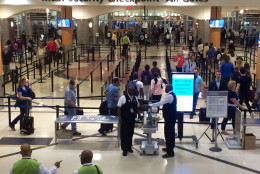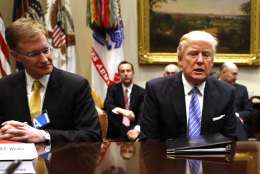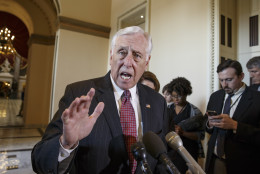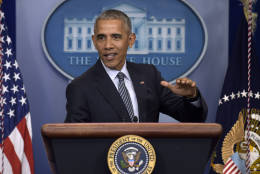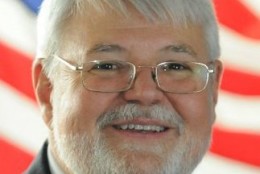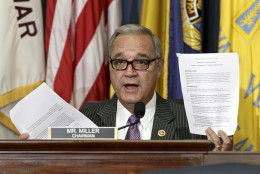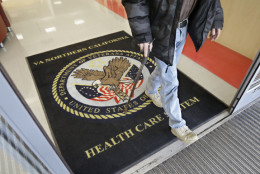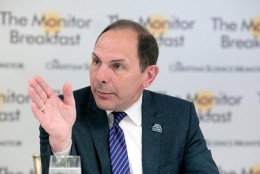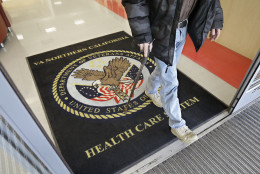J. David Cox
-
Congress called in outside experts to find out just what can improve the agency, so the incoming administrator will have some guidance in improving the agency.
February 03, 2017 -
J. David Cox, national president of AFGE, joins host Derrick Dortch on this week's Fed Access to discuss federal workers will be affected by pay and hiring freezes imposed by President Donald Trump. February 3, 2017
January 27, 2017 -
President Donald Trump signed a memorandum Monday implementing a federal hiring freeze. It prevents agencies from making most new hires and prevents them from filling vacant positions. It does not apply to military or national security positions.
January 23, 2017 -
The House of Representatives voted Tuesday on its rules package for the 115th Congress, which reinstates a little-known provision from previous congressional sessions. The "Holman Rule" lets lawmakers offer amendments to appropriations packages on the House floor, which could cut an agency's spending, the number of its employees or a person's salary.
January 03, 2017 -
Why would federal workers boo a president for giving them a 9 percent pay raise, then cheer another one for a 2.1 percent increase? Senior Correspondent Mike Causey says timing is everything.
December 12, 2016 -
President Barack Obama signed a new letter to Congress alerting them of his plan to tell agencies to give every federal employee a 2.1 percent raise in 2017.
December 08, 2016 -
For J. David Cox, national president for the American Federation of Government Employees, the outcome of the 2016 presidential election came down to "bread and butter issues." And those are challenges that his union, which represents more than 309,000 federal employees, will rally for with the start of the new administration as well.
December 07, 2016 -
The council also revealed an annual study from the Office of Personnel and Management and Bureau of Labor Statistics, which measures the pay gap between federal employees and private sector workers.
October 28, 2016 -
The House is moving forward on a bill that would shorten the time in which Veterans Affairs employees and senior executives could appeal disciplinary actions and removals. The VA Accountability First and Appeals Modernization Act of 2016 also includes provisions that would change the veterans' appeals process, but the bill is drawing ire from the Obama administration, House Democrats and federal employee groups.
September 13, 2016 -
TSA released a determination on collective bargaining on Aug. 25, which changed some of the rules between the agency and the union. AFGE and TSA are currently involved in extended contract negotiations after TSA employees voted down the agreement reached in late 2015.
August 30, 2016 -
When labor-management relationships are strong, employee engagement improves, federal union leaders said during a discussion at the Federal Mediation and Conciliation Service conference in Chicago. Union leaders say their partnerships with agencies have improved over the past eight years, but the success of those partnerships too often depends on the administration.
August 18, 2016 -
The national commission charged with coming up with ideas to reform the VA health care system is calling for "bold" changes. Its main proposals are vigorously opposed by the government's largest employee union.
July 19, 2016 -
The congressionally-appointed Commission on Care has issued its final report on how to overhaul the Veterans Benefits Administration. It calls for greater use of local, private sector networks to augment the work of VA hospitals and clinics. The recommendations have also drawn the fire of the American Federation of Government Employees. J. David Cox, AFGE's national president tells Federal Drive with Tom Temin why he objects.
July 18, 2016 -
Among the VA Commission on Care's 18 recommendations are proposals that could have major implications for the Veterans Health Administration workforce, from its size and scope to its overall organizational structure. VA Secretary Bob McDonald said the department will respond to the commission's report in the coming weeks.
July 08, 2016 -
The congressionally-appointed VA Commission on Care suggested a major overhaul to the Veterans Health Administration. According to the commission's draft report, due to Congress by the end of the month, VHA employees should have their own personnel system.
June 09, 2016

